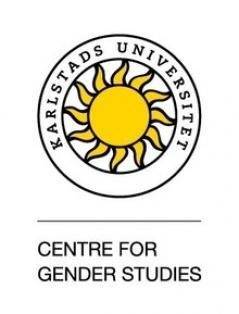Mini-Symposium CGF and Cri-Ageing
Speakers: Masa Higo and Annika Jonsson
Hosted jointly by the Centre for Gender Studies and the network Cri-Ageing: https://www.kau.se/en/sociology/research/cri-ageing-critical-studies-age-and-ageing
Masa Higo, Kyushu University International Student Center
What’s Next for an Aging Society? – A ‘Death-Laden’ Japan and Its Risks in Later Life
In following with the decades-long experience as the world's leader in population aging, from the next decade onward Japan will become a 'death-laden society.' The whole society will be overwhelmed with a range of unprecedented challenges, especially regarding health and safety in later life, due to the lasting trend of ballooning deaths from old age at a scale unparalleled in history. This seminar talk first overviews the main characteristics, causes, and consequences of a death-laden society. It then discusses one of the most daunting policy challenges with which a death-laden Japan will contend in the decades to come – the possible dilemma between promoting ‘dying in place’ and preventing ‘lonely deaths’ simultaneously. The latter refers to an incident when someone – particularly an older person living alone – spends his final years living alone and dies at home without care or attention from others, after which the deceased body is discovered by an unacquainted neighbor some weeks after his death. This presentation also explores some policy suggestions to address this dilemma, which might also serve as a source of policy lessons for other rapidly aging countries around the world.
Dr. Masa Higo is Professor of Sociology and Social Gerontology at Kyushu University International Student Center. He serves as the head coordinator of Japan in Today’s World Program (JTW) and the chief researcher of the Aging & Later Life Module of the Institute for Asian and Oceanian Studies (Q-AOS). Professor Higo’s research focuses mainly on the impacts of population aging on aged-related public policies in Asia and beyond.
Annika Jonsson, Karlstad University
Lost but not gone – exploring the absence-presence of the deceased
This presentation examines the absence-presence of the deceased as both an experiential and social phenomenon. For most bereaved, the deceased person appears present in some ways and absent in others. This may change over time or stay the same, but it blends with life as a whole without causing confusion or despair. For some, however, the absence-presence originates not only from the loss of a significant other, but also from malicious circumstances beyond their control. This kind of absence-presence, which has sharper edges and is connected to deep distress, presents us with an opportunity to analyse certain layers of the social from the vantage point of the bereaved. The absence-presence of the dead is a complex phenomenon and this presentation aims to capture critical aspects of it using empirical examples from studies conducted in northern Europe.
Annika Jonsson is associate professor in sociology at the Department of Social and Psychological Studies, Karlstad university. Her research concerns loss, continuing bonds, personal life, normativity and power relations.


